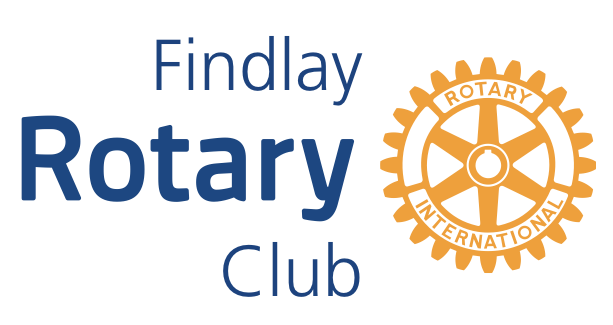Grant brings clean water to thousands in Ghana
Worldwide, more than 748 million people live without access to clean water and at least 3,000 children die each day from diarrheal diseases caused by unsafe water. Rotary is working to change that. For example, members used a Rotary grant to drill more than 20 clean-water wells and to repair another 30 in villages across Ghana. The project also included education about and treatment of Buruli ulcer, a debilitating infection that if untreated can lead to disability and death. Nearly 70,000 people will benefit from this initiative.
Support a water and sanitation projectGive now to the clean…
Institute equips regional leaders to advance Rotary’s story
Regional leaders from around the globe gathered at Rotary World Headquarters in Evanston in early March for training they will use to inspire members in their respective areas.
Several participants – most of whom will begin their term on 1 July – noted that the true measure of the institute’s success will be how well the information they learned is transmitted to Rotary members.
“We have to realize that training doesn’t stop at the district level,” said Michael Boyer, a Rotary public image coordinator from Pismo Beach, California, USA. “We train people really well to be governors and club…
UNESCO-IHE scholarship applications now available
The Rotary Foundation and UNESCO-IHE Institute for Water Education are offering up to 10 scholarships for graduate study at UNESCO-IHE’s Delft campus in the Netherlands. The aim is to increase the number of trained professionals who can devise, plan, and implement water and sanitation solutions in developing areas. The scholarships also are designed to promote long-term relationships between Rotary members and skilled water and sanitation professionals.
Scholars will receive a Master of Science degree in urban water and sanitation, water management, or water science and engineering. The…
Successful women mentor youth through Rotary
When Clara Montanez was a student, she never heard the word mentoring. The idea of having a role model help you pursue your ambitions was unfamiliar to her.
“You basically chose your career based on personal interest and hoped you could find a job,” says Montanez, senior director of investment for Oppenheimer & Co., Inc. “I went the route of getting married and having children first, and started my career later in life. I had no model for how to do that.”
That changed for Montanez the day a friend invited her to join Rotary.
“Frankly, I was dragged into Rotary. I didn’t see a connection…
Moved to action
From the March 2016 issue of The Rotarian
Dhaka, the capital of Bangladesh, is the 11th-largest city on earth. Nearly a third of its 15 million residents live in trash-strewn slums, subsisting on less than $2 a day. Women have it worst: Second-class citizens, often married off in their midteens, many struggle to raise children in conditions most Westerners would find medieval. A recent study found that “65 percent of slum women share one toilet with more than seven families.”
Into this “difficulty” steps Hashrat Ara. “Difficulty” is her understatement of the challenges a physician faces in…
Best in a supporting role
From the March 2016 issue of The Rotarian
I believe I am safe in assuming that most of you are not regular readers of the Journal of Leadership Studies. Nor that you had the pleasure of perusing the article in that magazine’s Winter 2014 issue titled “Followership in Leadership Studies: A Case of Leader-Follower Trade Approach.” To save you the trouble, let me summarize the argument put forward by the author, Petros G. Malakyan:
While an abundance of research is devoted to leaders – an entire literature, in fact –almost nothing is written about followers.
The reason for this is not…
Q&A: John Germ is a man of commitment
From the March 2016 issue of The Rotarian
When John Germ takes office as Rotary International’s president in July, it will mark his 40th year in Rotary. In that time, he’s likely best-known for leading Rotary’s $200 Million Challenge, a fundraising effort sparked by a challenge grant from the Bill & Melinda Gates Foundation. Rotarians surpassed that goal in 2011, raising $228.7 million toward polio immunization activities. “I never questioned that we would raise the funds,” he says. “Rotarians have been so generous.” In fact, raising money for polio was one of Germ’s first leadership…
Rotarian Action Groups: Breaking the invisible chains of slavery
From the March 2016 issue of The Rotarian
Anne Marie called her home “the abandominium” – an abandoned building without heat or lights – to make it sound more posh. She told me that the man who said he loved her turned out to be a pimp and forced her to stand on Philadelphia street corners. After a while, she couldn’t remember how many times she was beaten or raped. Anne Marie taught me what it really means to be a victim of human trafficking – to live in captivity by the invisible chains of fear and psychological control, and to endure terrible violence.
For years, she did not make her own…
Sports: Baseball gives back
From the March 2016 issue of The Rotarian
One day last summer, the New York Mets hosted the San Francisco Giants, but that wasn’t the main event. Not to the softball players tearing around the field before the baseball game. To Marine Sgt. Marco Velarde, Coast Guard specialist Kayla Hartley, and a couple dozen other soldiers, the annual Mets Military Softball Classic was the contest that counted.
They were here to settle an interservice softball rivalry, but also to meet Mets players, introduce their kids to the baseball-headed mascot Mr. Met, enjoy a family meal, stay for the home team’s 5-4…
